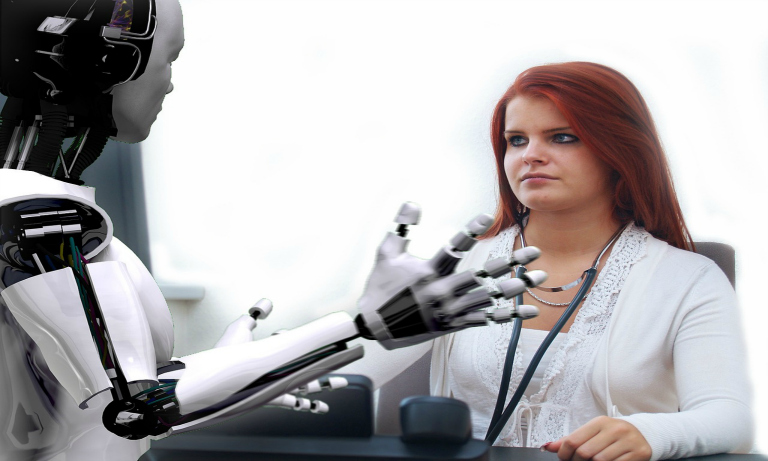 But should we worry about this or should we embrace it?
But should we worry about this or should we embrace it? Apparently nearly half of all jobs in the US will be completed by robots in 20 years’ time, which is a scary thought. If you think it is a bit rough now when you try to keep your seat on an overbooked plane, just wait until a robot is checking the tickets! Let’s look at which jobs robots will take first.
1. Recruitment professionals
Now that you are paying attention, the fact is that those in recruitment are amongst the least likely professionals to be replaced. When the CVs are checked and the job candidates tested and assessed, there is one vital question – do we want to work with this person? This gut feeling will be nigh on impossible if your gut consists of wiring and various chips.
2. Middle management
Middle management will be an early casualty, or so it would appear. Before you break out the prosecco, bear in mind that this is a very vague job description. Most would agree that performance management analysts and other leeches on the productive workforce could go; however, will it not be the case that they simply morph into a robot – an (even more) humourless collector of pointless performance data?
Since robots will be cheap, one of the unforeseen consequences may be an enormous increase in the number of Excel spreadsheet-compiling automata; however, that has happened already! Hopefully someone is working on how we will distinguish the robots from the humans, as a quick glance around most offices leads to a strong suspicion that our robotic colleagues are in the workforce already.
3. Selling
The idea is that robots will phone us up and ask silkily about our TV subscription and will be able to do this again and again, day and night, without getting tired or snarky. You can just tell these robots have been programmed by software engineers. Sales is where you get information, compare products and make a rational decision, isn’t it?
Not really – any salesperson will tell you that sales is where you get three estate agents round to value your house and commission the one with the best suit. Is it really kind to these robots to let them think that the highest intelligence and most sophisticated reasoning abilities will be a passport to getting on in the human world? It has not really worked out that way so far, has it?
4. Accountants
When Dorothy Parker heard that US President Coolidge had died, she is reported to have said: “How could they tell?” The same could be said of accountants.
5. Doctors and consultants
Robots are supposed to be exceptionally good at being doctors, as they have all the latest facts and figures at their fingertips and presumably do not allow emotion to cloud their judgement.
This shows a remarkable confidence in the idea that facts govern medicine; however, the history of medicine is littered with facts that were subsequently shown to be wrong. Most doctors say that the practice of medicine is half art, half science. It also has a great deal to do with humanity.
Join Over 40,000 Recruiters. Get our latest articles weekly, all FREE – SEND ME ARTICLES
Recruiters love this COMPLETE set of Accredited Recruitment & HR Training – View Training Brochure








